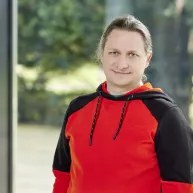Data-driven Agent-based Modeling in Computational Social Science
We are working to develop and integrate dynamic models of segregation, polarization, inequality and growth. We are applying our models and ideas to quantify attitude polarization with respect to extremists, moderates, and centrists. Scholars within the group integrated the functional form of psychological behavior of attitude change and implemented these forms in a society model to study what individual mechanisms produce different attitude distributions. Another investigation modeled social activation based on the observations of two quite different protest movements in Germany and Iran. One team located a model of segregation in a setting of real geography and demography including not only ethnicity but also socio-economic status. They built a model which is able to reproduce segregation patterns observed in the real world, starting from a nonsegregated town.
- The group organized three two-week BIGSSS summer schools and research incubators in Computational Social Science on Conflicts 2018 at Constructor University, Migration on Sardinia 2019, and Social Cohesion in Groningen 2022. The first school produced an edited volume with Springer, while the second school resulted in a special issue in the Journal of Ethnic and Migration Studies.
- We integrated into the DFG Research “Social Dynamics of the Self”, and will apply agent-based models to that work.
- We were part of an international project “Towards Realistic Models of Social Influence” (ToRealSim) with partners in the United Kingdom, France, and the Netherlands.
Our research comprises a network of collaboration. We work on ToRealSim together with Prof. Klaus Boehnke and our two PhD students; Prof. Adalbert Wilhelm and Prof. Boehnke for the BIGSSS Summer School in Computational Social Science (which is funded by the Volkswagen Foundation); and within the “Social Dynamics of the Self” consortium.
- Zuccotti, C. V., Lorenz, J., Paolillo, R., Rodríguez Sánchez, A., & Serka, S. (2022). Exploring the dynamics of neighbourhood ethnic segregation with agent-based modeling: an empirical application to Bradford, UK. Journal of Ethnic and Migration Studies, 1-22.
- Gestefeld, M., Lorenz, J., Henschel, N. T., & Boehnke, K. (2022). Decomposing attitude distributions to characterize attitude polarization in Europe. SN Social Sciences, 2(7), 1-35.
- Lorenz, J., Neumann, M., & Schröder, T. (2021). Individual attitude change and societal dynamics: Computational experiments with psychological theories. Psychological Review, 128(4), 623.
- Lorenz, J. (2021). Data-driven agent-based modeling in computational social science. In Handbook of Computational Social Science, Volume 1 (pp. 150-167). Routledge.
- Asgharpourmasouleh, A., Fattahzadeh, M., Mayerhoffer, D., & Lorenz, J. (2020). On the fate of protests: Dynamics of social activation and topic selection online and in the streets. In Computational conflict research (pp. 141-164). Springer, Cham.

